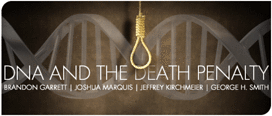Knowing I would likely be a lone voice in this discussion on many topics, I need to respond to Jeffrey Kirchmeier’s comment about DNA collection: “Regarding the advocates for a broad collection of DNA evidence and Marquis’s suggestion that the government might need my DNA because I am a lawyer, I will leave that issue for another discussion, except to say that others have raised concerns both about privacy and overburdening DNA labs.”
As the New York State Assembly correctly noted, the broader the DNA base the more likely you can convict the guilty and exonerate the innocent. Most lawyers already have to submit to fingerprinting in order to be licensed by their states. Since—as I pointed out—the method of collection (q-tips) is nowhere near as invasive as the syringe of a decade ago, and the only use of such a sample is to identify or exclude that subject, it can’t be used to intrude on your medical privacy. I made the suggestion to show that in an equal society no-one should be “exempt” from such identification. At present most states take sex offenders, more take convicted felons, and now New York proposes to take all arrestees. I would add all law enforcement officers who are also currently fingerprinted so that the DNA database is as wide as possible.

